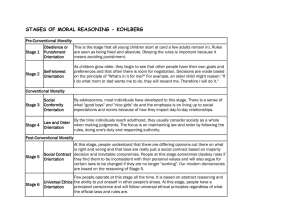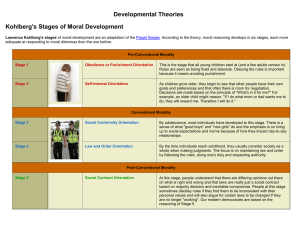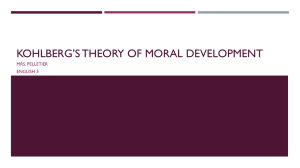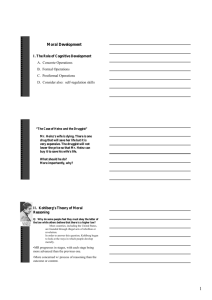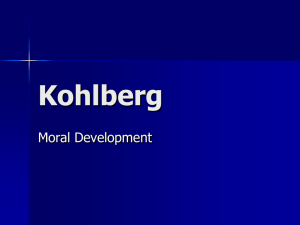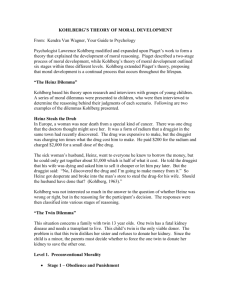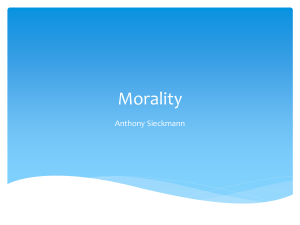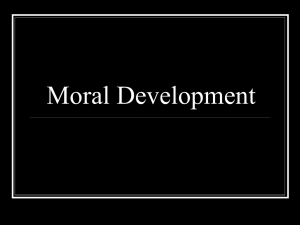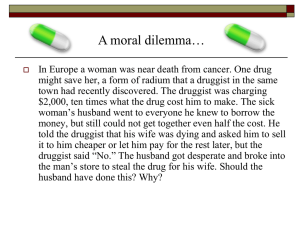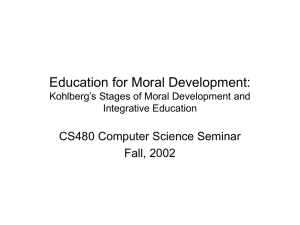here - WordPress.com
advertisement
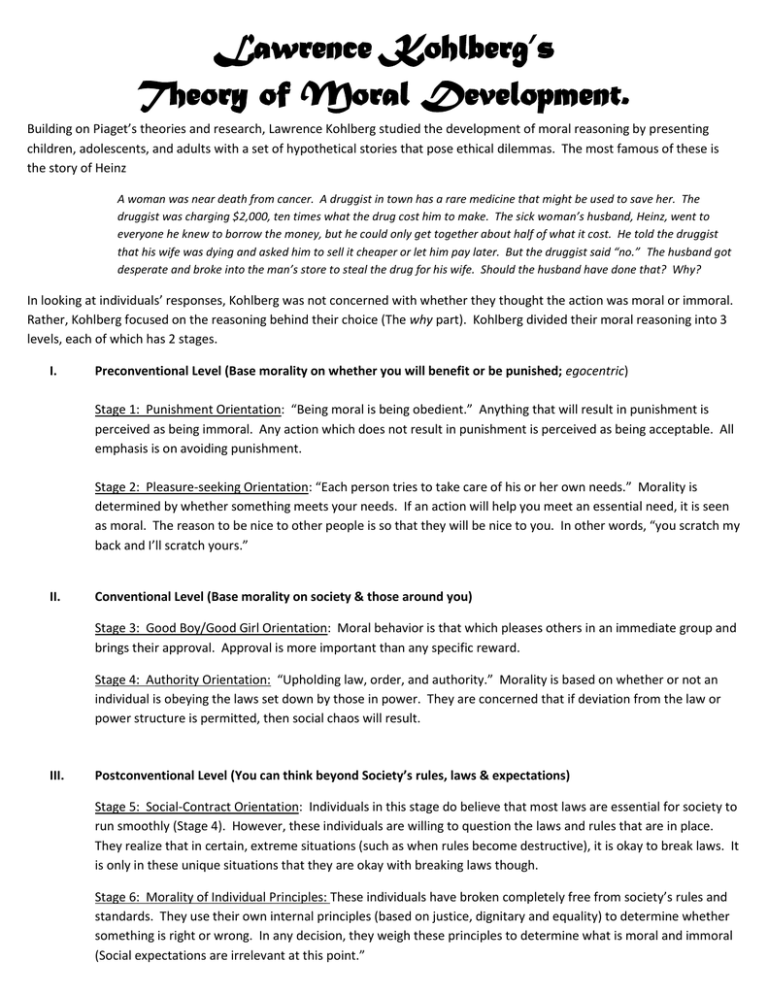
Lawrence Kohlberg’s Theory of Moral Development. Building on Piaget’s theories and research, Lawrence Kohlberg studied the development of moral reasoning by presenting children, adolescents, and adults with a set of hypothetical stories that pose ethical dilemmas. The most famous of these is the story of Heinz A woman was near death from cancer. A druggist in town has a rare medicine that might be used to save her. The druggist was charging $2,000, ten times what the drug cost him to make. The sick woman’s husband, Heinz, went to everyone he knew to borrow the money, but he could only get together about half of what it cost. He told the druggist that his wife was dying and asked him to sell it cheaper or let him pay later. But the druggist said “no.” The husband got desperate and broke into the man’s store to steal the drug for his wife. Should the husband have done that? Why? In looking at individuals’ responses, Kohlberg was not concerned with whether they thought the action was moral or immoral. Rather, Kohlberg focused on the reasoning behind their choice (The why part). Kohlberg divided their moral reasoning into 3 levels, each of which has 2 stages. I. Preconventional Level (Base morality on whether you will benefit or be punished; egocentric) Stage 1: Punishment Orientation: “Being moral is being obedient.” Anything that will result in punishment is perceived as being immoral. Any action which does not result in punishment is perceived as being acceptable. All emphasis is on avoiding punishment. Stage 2: Pleasure-seeking Orientation: “Each person tries to take care of his or her own needs.” Morality is determined by whether something meets your needs. If an action will help you meet an essential need, it is seen as moral. The reason to be nice to other people is so that they will be nice to you. In other words, “you scratch my back and I’ll scratch yours.” II. Conventional Level (Base morality on society & those around you) Stage 3: Good Boy/Good Girl Orientation: Moral behavior is that which pleases others in an immediate group and brings their approval. Approval is more important than any specific reward. Stage 4: Authority Orientation: “Upholding law, order, and authority.” Morality is based on whether or not an individual is obeying the laws set down by those in power. They are concerned that if deviation from the law or power structure is permitted, then social chaos will result. III. Postconventional Level (You can think beyond Society’s rules, laws & expectations) Stage 5: Social-Contract Orientation: Individuals in this stage do believe that most laws are essential for society to run smoothly (Stage 4). However, these individuals are willing to question the laws and rules that are in place. They realize that in certain, extreme situations (such as when rules become destructive), it is okay to break laws. It is only in these unique situations that they are okay with breaking laws though. Stage 6: Morality of Individual Principles: These individuals have broken completely free from society’s rules and standards. They use their own internal principles (based on justice, dignitary and equality) to determine whether something is right or wrong. In any decision, they weigh these principles to determine what is moral and immoral (Social expectations are irrelevant at this point.”
